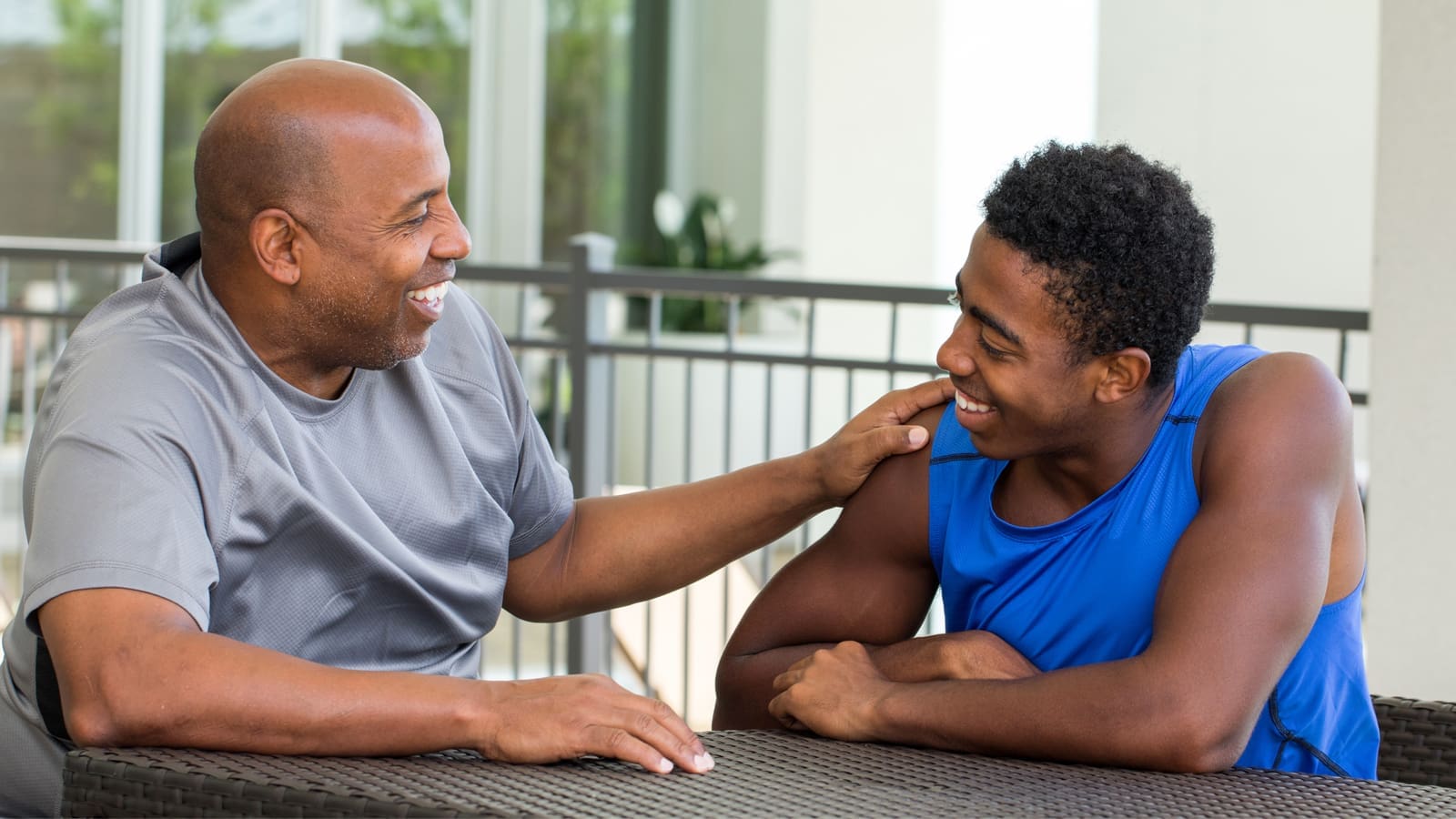
Get stories and expert advice on all things related to college and parenting.

As fall semester draws near, there’s still a lot of uncertainty about whether or not students will be allowed back on campus due to COVID-19 safety precautions.
Some institutions are taking nuanced approaches to reopening. Harvard, for example, has announced that incoming freshmen will be invited to live and study on campus for the fall semester (though all classes will be held online). But by spring semester, freshmen will move home to make room for seniors who are looking forward to their graduation.
At the University of South Carolina and many other schools, the plan is to end in-person classes before Thanksgiving and finish out the semester remotely. They’re canceling their typical fall break in order to condense the term.
The thought behind these hybrid (or “HyFlex”) approaches is to minimize the number of people on campus at any time, the amount of time students spend on campus, the amount of travel required of students (this includes reducing the risks posed by students leaving and returning to campus), and to allow for increased social distancing measures and de-densification of classrooms and residence halls.
But it’s hard to tell what will happen as the virus continues to spread and case numbers rise in different parts of the country.
Even if your student’s campus is re-opening this fall, depending on the safety protocols the school is or isn't putting into place, you and your student may decide it’s unsafe for them to return — or to start college at this time if they are a freshman. Or, in the case of schools taking Harvard’s approach, your upperclassman may not be able to return to campus until the spring of 2021. Some students are also opting to attend their local community college until the coronavirus pandemic is brought under control.
For parents of college students, the changes and uncertainty are a lot to absorb. If your student ends up living at home for the fall semester or longer, you may be worried about keeping everyone in the family happy — yourself included.
Student are impatient to get back to campus life. The longer they have to delay their college experience, the more stressful things might get at home.
You’ve already faced a number of challenges with your student being back at home in recent months. They may want to hang out with friends or go out, even though it isn’t safe to do so. It’s also possible they’ve been unable to get a job this summer due to pandemic-related closures.
Your student may be stressed, restless, bored, unmotivated, anxious or even suffering from college depression — not a specific diagnosis, but rather a term for depression in college students, which is more and more common according to the Mayo Clinic. What’s a parent to do?
Start by acknowledging that the current situation is tough for everyone. There are no easy answers, and that’s okay.
But if you, your student and the rest of your family are going to get through another semester or more together at home, you need to be proactive.
Now that they’re living back at home, it’s time to renegotiate how everyone in the family can get along and stay respectful of each other’s schedules.
Perhaps when your student moved home back in March, you didn’t consider how this sudden, seemingly temporary, change might turn into a longer “new normal.” Now that it’s apparent your student will be home for many more months to come, it’s important to establish clear ground rules, if you haven’t already.
Whatever you decide the house rules are, communicate them clearly. Communication between parents and college students is the best way to prevent problems from cropping up.
You may want to establish rules around curfew; balancing time between friends, significant others and family; alcohol use; chores; and more.
Regarding pandemic safety, it's reasonable to expect your student to follow the same protocols that you are yourself. Some rules for your college student living at home may include:
Keep in mind, you don’t wield the same authority you did when your student was younger. They'll always be your child, but they’re also a young adult who is used to setting their own schedule and living by their own rules.
For this reason, being inflexible about rules may result in push back. Offer your opinion, tell your student why you think the rules matter, and trust that by respecting your student, they’ll respect you back.
Establishing, communicating and agreeing to ground rules will make a big difference in keeping the peace with your student during their extended stay at home.
Remote learning is tough enough as it is. If your student is also distracted by noise or their siblings when studying at home, it can be that much harder.
As the fall semester begins, it’s important to remember that your student's highest priority is to reach their academic goals.
Hopefully, your student worked out ways to stay productive and focused while finishing their spring semester at home. But over the course of the summer, it’s all too likely those good habits may have been forgotten.
Now’s the perfect time for a refresh to get set up for success in the fall semester, a time to look at what went well for your student’s remote learning in the spring, and what could be improved.
Here are a few simple tips to help your student stay on track this fall:
With all the changes to their routine, many students are feeling stressed, lonely, frustrated or anxious right now. They miss their friends and campus life. They may be worried about family members getting sick or passing away. They may have struggled with the transition to remote learning. Maybe they don’t know if they’ll be able to get a job after they graduate.
Any or all of the above may be the case for your student. If they’re not allowed to return to campus and get back to normal life this fall, their mental health challenges may even increase.
Try to stay tuned in to how your student is doing, keeping in mind that while some teens and young adults talk openly about their feelings, others put on a happy face while bottling stuff up in an unhealthy and even dangerous way.
Consider the following ideas to help your student maintain wellness and balance during this unpredictable time:
One option many college students are considering is getting their own place for the fall semester to rent alone or with friends.
Given the money your student is saving on room and board, it may not be a bad idea for them to look at putting that savings toward a rental in your hometown or near their college. It's possible that housing won’t be too hard to find with so much uncertainty around the fall semester — plus, more students are living at home, while others have decided to take time off from school during the pandemic.
If your student isn’t able or willing to abide by your household rules about social distancing, or if they just need to exercise more freedom and autonomy, this could be a solution that will make everybody happy.
It goes without saying that as parents, we tend to put our children first. But don’t forget that you have needs, too. This is a stressful time for everyone, not just your student.
Our “new normal” may not be what you and your family had in mind for 2020, but here we are. It won’t be easy, but we can get through this together.
Read one parent's perspective on adjusting to life at home with her family during the pandemic >